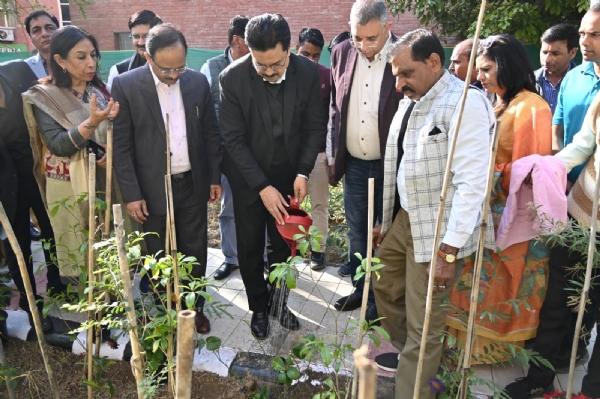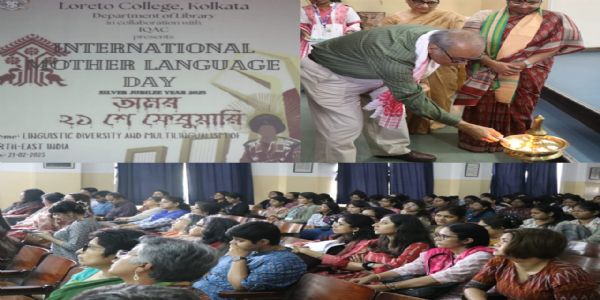
New Delhi, February 18 (HS): Delhi University (DUU) has taken an important step towards tackling air pollution by doing urban intensive tree plantation in collaboration with non-governmental organization Green Yatra. This green initiative inspired by the Vice Chancellor's commitment towards environmental sustainability demonstrates the transformative potential of eco-friendly practices in the urban environment. On Tuesday, Vice Chancellor Prof. Yogesh Singh inaugurated this intensive plantation and planted a lemon tree himself. On this occasion, the Vice Chancellor said that due to lack of space in Delhi University, intensive tree plantation is a good initiative.
The Vice Chancellor said that Delhi University is serious about its responsibility towards the environment. Wherever trees come in the way during construction work in the university, work is being done to plant them at another place instead of cutting them. Many times trees have to be removed for construction work and expansion work, so more work should be done on intensive tree plantation by identifying suitable places in Delhi University, so that greenery remains intact. The Vice Chancellor said that this venture not only reflects our university's dedication to environmental sustainability but will also serve as an exemplary model for other academic institutions. It is our collective responsibility to tackle air pollution and restore ecological balance in our cities.
Prof. Rupam Kapoor, Chairperson, Delhi University Gardens Committee informed that this urban plantation, developed on a small plot of 300 square metres near DU Arts Faculty, is based on the famous Miyawaki technique pioneered by Japanese botanist Akira Miyawaki. This technique emphasizes planting of native trees and shrubs in dense clusters, making it an ideal solution for urban areas with limited land resources. The Miyawaki method not only maximizes green cover in small spaces but also accelerates growth, enhances biodiversity and improves air quality. The entire process is completely organic, with traditional use of rice husk, mustard cake, vermicompost, cow urine, jaggery and gram powder to make the soil fertile. About 750 saplings of 41 species have now been planted in this green area. This is an experimental initiative for the university. If it proves successful, we plan to expand the intensive plantation technique to other small plots available within the campus.
Inaugurating the plantation, the Vice Chancellor himself planted a lemon tree with his own hands, which is a symbol of new commitment towards environmental protection. On this occasion, saplings of other native species were also planted by South Campus Director Prof. Prakash Singh, Registrar Dr. Vikas Gupta, Proctor Prof. Rajni Abbi and Dean Student Welfare Prof. Ranjan Tripathi.
Hindusthan Samachar / Jun Sarkar






